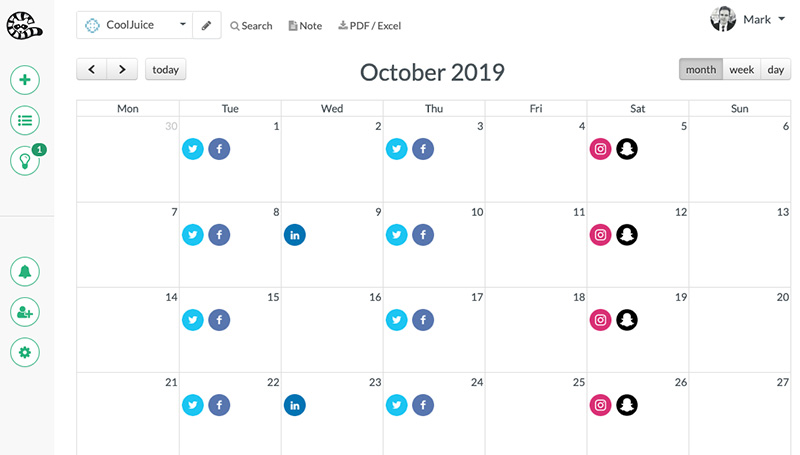An organised social media calendar can be the backbone of a successful content strategy, helping businesses to effectively manage their digital presence, increase engagement, and drive results. However, creating an efficient social media calendar is not as simple as it may seem.
There are several mistakes that brands often make while planning their social media strategy, which can negatively impact their performance and result in wasted resources. This post will highlight some of the most common mistakes to avoid when creating a social media calendar, ensuring that your brand’s online presence remains consistent, engaging, and impactful.
1. Unclear Goals and Objectives
Before planning your social media content, you must define your goals and objectives. With clear goals, measuring success or making informed decisions about your content strategy is easier.
Are you trying to increase brand awareness, generate leads, or drive sales? Be specific about what you want to achieve and set measurable targets that align with your overall business objectives. Aligning your online content with your goals will help create a more focused and effective plan.
2. Failing to Create a Content Mix
Many businesses make the mistake of sharing the same type of content across all their social media platforms. A successful social media calendar should include a diverse mix of content, such as blog posts, videos, images, and curated content from other sources.
This not only keeps your audience engaged but also helps you test and learn what types of content resonate best with your target audience. Analyse your engagement metrics to see which content types perform well and adjust your calendar accordingly.
3. Ignoring Your Audience’s Preferences
Understanding your audience’s preferences is crucial when planning your social media calendar.
Conduct market research or analyse your social media analytics to identify the types of content, posting frequency, and optimal times your audience will most likely engage with. Neglecting your audience’s preferences can result in low engagement rates, making it difficult to achieve your social media goals.
4. Inconsistency in Posting Frequency
An erratic posting schedule can be detrimental to your brand’s online presence. If you post too infrequently, your audience may forget about your brand or lose interest, while over-saturating your followers’ feeds can result in them becoming annoyed and unfollowing your accounts.
Determine the optimal posting frequency for each platform and stick to it, ensuring that your content remains fresh and relevant without overwhelming your audience.
5. Not Planning for Holidays and Events
One of the main advantages of having a social media planner is the ability to plan ahead for holidays, seasonal events, and industry-specific occasions.
Failing to include these events in your calendar can result in missed opportunities to engage with your audience or capitalise on trending topics. Research relevant holidays and events in advance and create content that aligns with these occasions.
6. Neglecting to Track and Analyse Results
Monitoring your social media performance is essential to understand the effectiveness of your content strategy to make data-driven decisions. Many businesses create a social media calendar but fail to track and analyse their results regularly.
Set aside time each month to review your social media analytics and adjust your content plan based on the insights gained. This continuous improvement process will help you optimise your social media strategy and achieve better results over time.
7. Relying on Manual Processes
Manually scheduling and posting social media content can be time-consuming and prone to human error. Investing in a social media management tool can help streamline your content creation and scheduling process, saving you time and reducing the risk of mistakes.
Automation tools also offer valuable analytics and insights, making it easier to track and optimise your performance.
Conclusion
Creating an effective social media calendar involves careful planning, consideration of your audience’s preferences, and regular analysis of your results.
By avoiding these common mistakes, you can ensure that your online content remains consistent, engaging, and aligned with your brand’s goals and objectives. Your social media planner should be flexible and adaptable, allowing you to make data-driven decisions and continually refine your strategy for maximum impact.
ContentCory is a useful social media content planner software for managing and organising your social media content through a simple calendar layout. This tool enables you to plan, schedule, and monitor the effectiveness of your posts while also collaborating with your team members in a single location. Register now and begin your journey towards a thriving social media plan!


